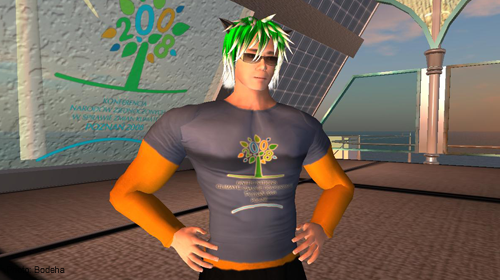
It seems that literally no one is safe from the NSA. Even digital alter egos living in fantasy realms in the online gaming world are being caught up in the NSA's surveillance dragnet.
A newly leaked reveals that the NSA and British intelligence agency GCHQ have developed enabling them to monitor the activities and communications of the 48 million Xbox Live console network gamers. U.S. intelligence agents from the FBI and CIA, along with GCHQ agents, have also been infiltrating virtual worlds created in games like Second Life and World of Warcraft.
The spies pose as fellow gamers in order to collect intelligence, including communications content and geolocation information; identify players' online social networks; and even recruit informants. So many U.S. intelligence agents participate in this surveillance effort that the intelligence community had to establish teams of referees called "deconfliction" groups, who help to prevent spies from clashing with each other in these fantasy worlds.
In spite of all of these spooks trolling our gaming worlds, and NSA analysts' exclamatory assurances that games "are an opportunity!" for effective intelligence collection, it's not clear that any of this surveillance helped to prevent any terrorist plots. What has become painfully clear is that the NSA and the intelligence community at large have created a surveillance apparatus that puts even the dystopic creation of George Orwell's "1984" to shame. And it not only threatens our rights to free speech and privacy, undermining the very foundation of our democracy, it of our economy as well.
All of this raises the question of how this latest chapter in mass surveillance will affect the gaming industry. Gamers, like other tech sector consumers, should be just as concerned about whether the companies that they trust with so much of ‚Äďfrom their demographics and nationality, to time spent playing, and even social connections and conversations shared over these virtual realms‚Äďwill fight to protect their privacy. According to the Entertainment Software Association's (ESA) on sales, demographics, and usage data, consumers spent $20.77 billion dollars on the gaming industry in 2012, and 28 percent of computer game sales is attributable to "role playing" games like those being infiltrated by U.S. and British intelligence agents. Is this really an industry that we want to threaten with abusive and ineffective surveillance programs?
On Monday, by . They published a website, took out full-page ads in national newspapers, and wrote an open letter to President Obama and to Congress demanding that the government end bulk collection and target its surveillance at individuals suspected of wrongdoing.
Gaming companies and their trade associations should join in this fight to protect their users' privacy by .
Learn more about the NSA and other civil liberty issues: Sign up for breaking news alerts, , and .

